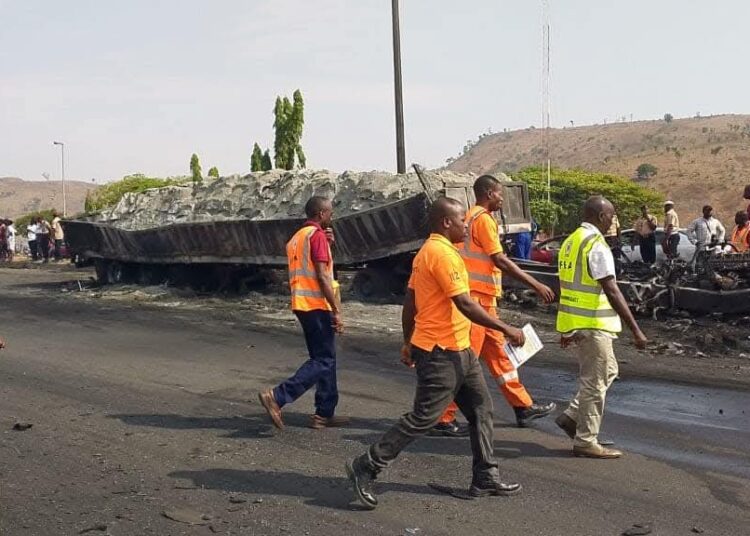The Presidential Compressed Natural Gas Initiative (PCNGI) and the Nigerian Midstream and Downstream Petroleum Regulatory Authority (NMDPRA) have linked the Karu Bridge tanker explosion in Abuja to brake failure, based on preliminary investigations.
Investigation & Findings
Michael Oluwagbemi, PCNGI’s Chief Executive, visited the accident site on Thursday alongside officials from NMDPRA and the Standards Organisation of Nigeria (SON), both of which are conducting independent investigations.
The accident, which occurred Wednesday evening, involved a bi-fueled petrol tanker, leading to multiple vehicle fires and damage to structures.
The Federal Road Safety Corps (FRSC) also attributed the crash to brake failure, which triggered a chain reaction involving 18 vehicles.
NMDPRA’s Executive Director, Ogbugo Ukoha, noted that the accident involved a CNG-powered truck transporting cement, also confirming brake failure as the cause.
Safety & Regulatory Measures
Stricter road safety enforcement for articulated vehicles, especially on brake systems and overall vehicle maintenance.
Stronger licensing requirements for commercial drivers, including safety and emergency response training.
Nigerian Gas Vehicle Monitoring System (NGVMS) launch to enhance oversight and promote safer CNG adoption.
New Fuel Tanker Regulations
Nigeria has banned 60,000-litre fuel tankers, effective March 1, 2025, to curb road accidents.
From Q4 2025, trucks exceeding 45,000 litres will not be allowed to load petroleum products.
PCNGI’s Position
Oluwagbemi reaffirmed the safety of CNG-powered vehicles, urging patience as investigations continue. He extended condolences to affected families, emphasizing the need for a safer, more sustainable transport system in Nigeria.




